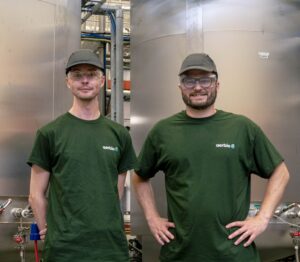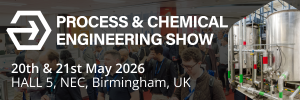Feed from gas project takes big step forward with pilot facility launch

Aerbio – formed from the management buy-out of Nottingham-headquartered Deep Branch – is working with a consortium of partners, including the Sustainable Aquaculture Innovation Centre (SAIC), as part of the REACT-FIRST initiative to produce a novel single-cell protein called Proton.
The pilot facility is based in the Netherlands at the Brightlands Chemelot Campus, a hub for circular chemistry and chemical processes.
The opening of Aerbio’s pilot facility will allow larger feed trials to begin, with an initial 200 kg of Proton being produced per month.
The pilot facility will help the company determine how best to integrate itself into the food chain, with the Proton it produces being used in the assessment and development of a number of applications, including in the REACT-FIRST initiative.
Pete Rowe, co-founder and CXO of Aerbio, said: “The opening of our pilot facility is a significant step forward for our technology.”
The energy transition means that large-scale projects are making both hydrogen and carbon dioxide available at scale.
Electrolyser projects see renewable power used to split water into hydrogen and oxygen, while carbon capture projects are enabling large volumes of food-grade carbon dioxide to reach the market, at the same specifications found within carbonated beverages and dry ice.
Heather Jones, CEO of SAIC, said: “At the North Atlantic Seafood Forum earlier this year, major salmon farmers and the world’s largest fish feed producers all recognised the vital importance of developing novel feed ingredients to replace marine and land-based ingredients that are finite in supply.
"The innovation of React First could ultimately help the global fish farming sector to grow sustainably. All of the projects we support aim to enhance the sustainability of aquaculture, while maximising its economic impact – this project is a great example of how you can do both, creating a more resilient food system in the process.”















